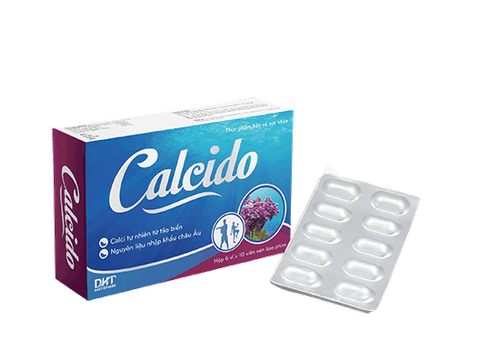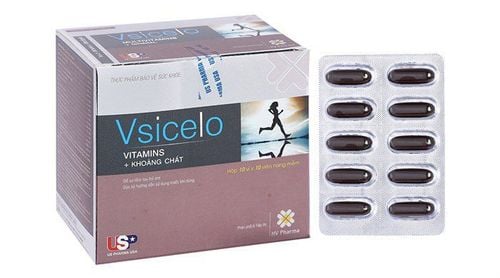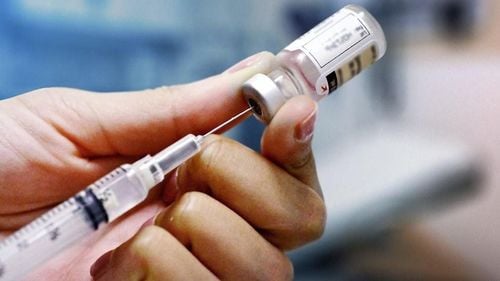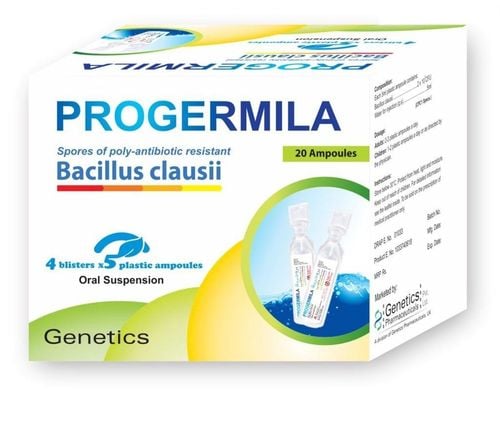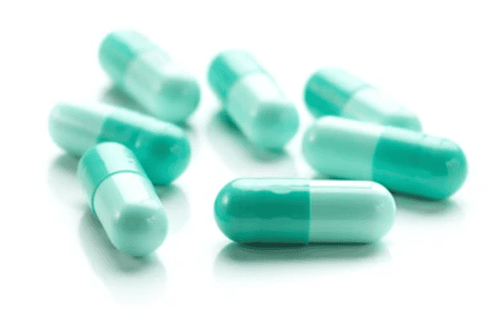This is an automatically translated article.
The article was professionally consulted by Specialist Doctor II Tran Thi Linh Chi - Head of Pediatrics - Neonatology Department - Vinmec Hai Phong International General HospitalChildren anorexia after taking medicine is a very common thing that worries many parents. There are many causes of this phenomenon, for example, due to taste disorders, intestinal flora disorders, long-term use of probiotics, zinc deficiency..etc.
1. Drugs affecting children's sense of taste
Medicines, especially antibiotics, affect the taste of children to different degrees:
Some antibiotics can change the microflora in the lining of the mouth, stomach and intestines, leading to tangles taste disturbances and infections in the oral region. After taking the medicine, the child has anorexia because of the bitter, sour or metallic taste in the mouth. Some other antibiotics interfere with the perception of certain salts. For example, Ampicillin, Amoxicillin, Pentamidine and Sulfamethoxazole decrease the sensitivity to the calcium chloride salt, and the antibiotics Ethambutol, Tetracycline and Pentamidine decrease the sensitivity to the potassium chloride salt. Ampicillin and Pentamidine also reduce sensitivity to sodium chloride salts. In addition, the way antibiotics are taken also affects the degree of taste disturbance. If you take antibiotics with acidic foods or drinks, you will feel more bitter than when you take them with filtered water.
In general, in the case of children with anorexia after taking the drug, there is a high possibility that the addition of digestive enzymes will not bring about the expected effect.

Uống thuốc xong trẻ biếng ăn hơn là điều rất phổ biến khiến nhiều cha mẹ đau đầu
2. Prolonged infection depletes zinc (Zn) and other essential micronutrients
Zinc (Zn) is an important component of the immune system, playing a role in stimulating the taste buds and bringing appetite for children. When children have long-term infections, the amount of zinc in the body is severely reduced. According to health research experts, zinc deficiency has an important relationship with children's illness, loss of appetite, sleep disturbances, prolonged breastfeeding reduction, slow weight gain...Besides, Some other essential micronutrients such as Selenium, B vitamins, Lysine, Taurine ... are also degraded because they are both consumed too much during the process of superinfection, and are not absorbed because the child is sick, so they eat less. The above micronutrients play an important role in the absorption of nutrients by children.
Antibiotics can help treat inflammation but also deplete essential micronutrients. That is the reason why children, even though they have recovered from the disease, still do not gain weight and become increasingly anorexic and fall into a vicious circle: Illness - Anorexia - Malabsorption - Illness...
3. Antibiotics disrupt the intestinal flora
Normally, in the human intestine there is a system of beneficial bacteria (about 100 billion), including many different types called bacteria. These bacteria always maintain a balance to help enhance digestion, absorb nutrients, eliminate toxins and inhibit harmful bacteria in the intestinal tract.After a severe infection, your child may have been on a lot of antibiotics. Although antibiotics work to kill disease-causing bacteria, they also kill the beneficial bacteria in the intestines of children. Therefore, the food the child eats will not be digested and absorbed by the bacteria as effectively as before, causing anorexia, digestive disorders, and solid stools... causing rickets, growth retardation, malnutrition in children.
To solve this situation, many parents have given their children probiotics. However, it should be noted: do not give probiotics to children for more than 1 week. Probiotics have the role of providing aerobic microorganisms (oxygen consumption), if many live probiotics are added to the body, they will consume oxygen in the child's intestinal tract, making the child prone to hypoxemia, causing fatigue. , drowsiness, lethargy... Therefore, it is necessary to supplement probiotics properly and in sufficient doses, only used when children have diarrhea and stop as soon as children have recovered.

Sử dụng kháng sinh khi trẻ bị ốm có thể gây rối loạn hệ vi khuẩn đường ruột
4. Solution for children with anorexia after taking medicine
Advice from health experts is that if possible, parents should limit the use of antibiotics for children. Antibiotics should only be used when absolutely necessary and strictly as prescribed by your doctor.
In case the child is required to take antibiotics, parents should pay attention to the nutrition and care of the child during this period. Specifically:
Increase zinc-rich foods such as lean meat, legumes, milk, eggs, dried seeds, vegetables... Supplementing with zinc with a content of 3mg/day will help reduce the incidence of diabetes by 40%. digestion, reducing the rate of respiratory diseases by 60%, and enhancing immunity for children. Children should eat more carrots, pumpkin to improve digestion. Supplementing with amino acids, especially Lysine and Taurine, is essential to solve the child's anorexia after taking the drug. Supplementing children with foods rich in vitamins of group B (B1, B2, B6) to provide energy because the child is sick but lacking. B vitamins help increase nutrient absorption as well as maintain cell activity, helping children to quickly get healthy. The supplementation of the above micronutrients needs to last at least 3-4 weeks for the child to fully recover. In addition, during and after the child is sick, the child should not be forced to eat, but should divide the portion of the meal into several light meals. Food should be processed in liquid, soft, easily digestible form and away from fatty and sugary foods. In the case of children with prolonged anorexia, malabsorption, and growth retardation, parents should supplement children with supportive products containing lysine, essential micro-minerals and vitamins such as zinc, chromium, selenium, and B vitamins. help meet the nutritional needs of children. At the same time, these essential vitamins also support digestion, enhance nutrient absorption, help improve anorexia, and help children eat well. Parents can simultaneously apply dietary supplements and functional foods derived from nature for easy absorption. The most important thing is that improving your baby's symptoms often takes a long time. Combining many types of functional foods at the same time or changing many types in a short time can make the baby's digestive system unable to adapt and completely not good. Therefore, parents must be really patient with their children and regularly visit the website vimec.com to update useful baby care information.





